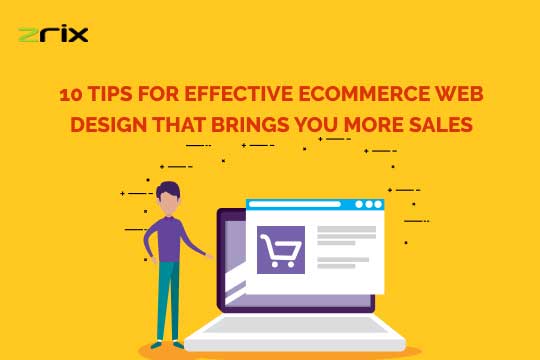When eCommerce sites first became available, many customers were apprehensive to utilize them since they couldn't physically feel or touch the things they were purchasing. They had to pay in advance and go through a long and arduous online payment process.
With the advent of digital culture, the impact of eCommerce on business has seen significant transformations for the better, allowing for faster checkouts and safer online transactions.
Importance of Digital culture is still at the heart of the e-commerce business, and it has used its incredible powers to link sellers with their customers via online and mobile platforms.
Adopting digital technologies and processes in your firm to achieve strategic business goals is what type of digital culture entails. It is a multidimensional process with the potential to cause a significant cultural and organizational shift in the firm. This digital tide has not spared the eCommerce industry.
Digital technology advancements have aided in diminishing the significance of distance, whether geographical or linguistic. This has made it easier to find things, match consumer interests to products, and verify quality and reputation. Because of this link, reasons for growth of e-commerce are important in the lives of consumers.
Quick Navigation
- Ways in Which Digital culture Impacts Industry to Drive Growth of ecommerce
- Enhanced Payments Solutions
- AI-Assisted Personalization
- Productive Social Media Marketing
- 24/7 Sales and Market Presence
- Data Management and Digital Supply Chain
- Demand-Driven Forecasting
- Capturing Customer's Attention
- Conclusion
Ways in Which Digital culture Impacts Industry to Drive Growth of eCommerce
Enhanced Payments Solutions
Fast, safe, and effective payment methods are critical for the eCommerce market's unprecedented expansion. According to studies, around 69 percent of shopping carts on an e-commerce site are abandoned by customers. One of the causes is a time-consuming and complicated payment method.
As a result, digital impact of e-commerce platform must feature an effective and simple payment system. Payment methods vary by country; for example, credit cards are prevalent in Canada and the United States, but digital funds and debit cards lead the European market. Although developing economies are predominantly cash-based, they are fast transitioning to digitization.
AI-Assisted Personalization
Every e-commerce company's main goal is to provide a better consumer experience, which may be accomplished through personalization. This is when AI comes into play.
E-commerce stores that employ AI can offer products that a customer is more likely to buy based on intelligent search history research. It provides analytics that can be used to improve relationships with customers via text or voice communications.
Also Read: 7 Reasons Why Your Business Needs an E-Commerce Mobile App
Productive Social Media Marketing
Customers and e-commerce industry growth are more connected than ever before thanks to social media. Customers can examine e-commerce products via photographs on social media sites such as Twitter, Facebook, and Instagram, and there are links that direct to e-commerce platforms with a click.
The company profiles of various items also allow customers to read product reviews and assess the product's benefits and downsides, providing them the option of making a better-informed purchase.
24/7 Sales and Market Presence
As the use of mobile app development services such as tablets, laptops, and smartphones has grown, they have become an essential part of a company's day-to-day operations. According to research, more than 90% of mobile device users keep them within easy reach at all times.
As a result, addressing these mobile devices paves the path for the e-commerce business to develop. The advent of speedier internet networks has elevated the digital experience to new heights, and the worldwide mobile e-commerce business is unstoppable.
Customers can shop at any time and from any location. Digitalization has enabled e-commerce platforms to have a market presence and sales that are available 24 hours a day, seven days a week.
Data Management and Digital Supply Chain
eCommerce data management and timely product delivery are critical factors for every store's growth. As a result, optimizing market supply chain management under increased demand and digitizing data management is critical. Every part of the supply chain has been eased through digital innovation, including:
- Inventory control
- Port administration
- Warehouse operations
- Brand security
- Delivery
- Infrastructure
E-commerce data management software such as Looker and Shopify provide a digital platform for properly managing all industry-related data. This is significant since a full grasp of consumer data allows for educated business decisions and contributes to the company's success.
Demand-Driven Forecasting
One of the most intriguing ways in which digital technology has changed the global e-commerce market share is anticipatory shipping. This is a novel strategy in which the e-commerce store anticipates its customers' next shopping list based on their purchasing history and has the items transported to the nearest logistic partner before the order is placed.
Also Read: 7 Components of Ecommerce Website Design You Should Be Aware
As a result, anticipatory delivery saves both customers and e-commerce stores a significant amount of time and work. Forecasting demand also aids the business in inventory management and ensures that there is always adequate stock following market demand.
Capturing Customer's Attention
The days of promotions being blocked out by advanced spam detectors or simply ignored are long gone. They now can capture the attention of customers directly on their home screen.
Several retailers employ push notifications to notify customers of forthcoming promotions and events. These push notifications appear on consumers' mobile devices or the company website and are an excellent approach to stay in the customer's mind.
Conclusion
We may conclude from the preceding essay that digital culture has had a significant impact on the e-commerce business and will continue to do so in the future of eCommerce. As digital technology advances, so does its impact on a variety of businesses. Artificial intelligence and automation have found their way into the e-commerce market and give numerous benefits. Also hire eCommerce Development Company which gives huge growth benefits to everyone.




